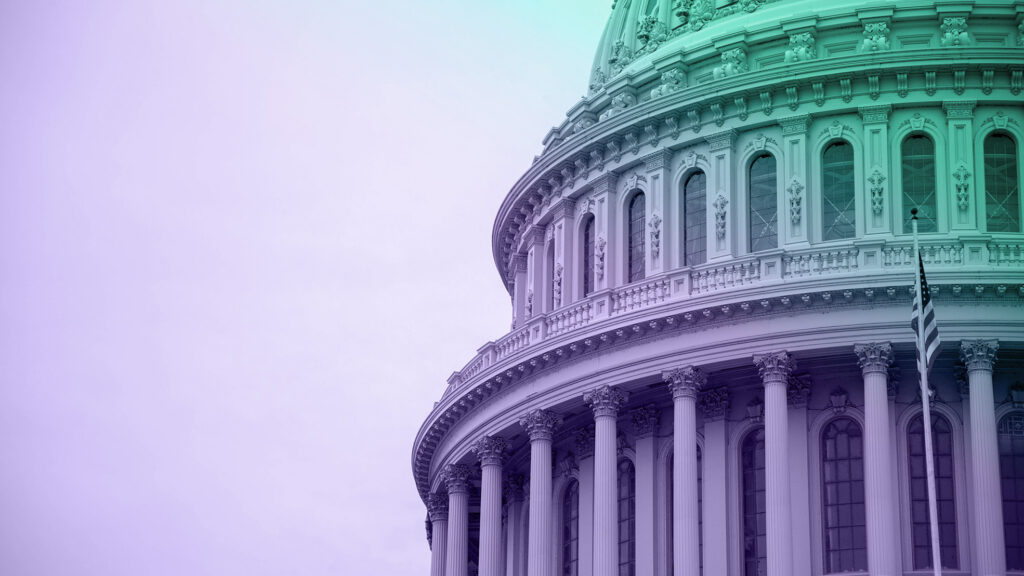January 2, 2022 — There can be little doubt that political polarization is increasing globally. Opinion polls, public voting patterns, and the actions of political elites tell a clear story of accelerating political polarization in North America and Europe. Political and social scientists argue that it weakens public trust in political institutions, creates policy gridlock, and can lead to creeping authoritarianism. Rising political polarization is also creating unique problems for large corporations increasingly caught in the middle between consumers and politicians demanding they pick sides. And maneuvering within that new world is getting more complicated.
At the risk of oversimplifying four decades of political history, the 1970s and 1980s were characterized by political parties on the left who represented organized labor (e.g., Democrats in the US, Labour in the UK, Social Democrats in Germany) and parties on the right who represented corporate and professional interests (e.g., Republicans, Conservatives, and Christian Democrats). The next thirty years were marked by a decline in the power of organized labor and a relative increase in the power of corporations. During this time, parties on the left shifted to become more business friendly. New Democrats led by President Bill Clinton and New Labour led by Tony Blair made a play for the center of the political spectrum and were unabashedly pro-business. Few politicians in any political party wanted to be labeled anti-business. This was a golden era for the corporate sector in the US and Europe.
That golden era ended on June 23, 2016, when the United Kingdom voted to leave the European Union. Brexit was opposed by many of the largest British companies, but was driven by a populist wave in an increasingly polarized polity. A few months later, Donald Trump was elected President of the United States, accelerating the political polarization that had been germinating for years. The subsequent six years have not been good for companies hoping to keep their heads down and focus on profits.
Political polarization has put corporates between a rock and a hard place, a trend I believe will continue for several years.
In the US, attacks on business from both political parties have accelerated. US companies are forced to navigate political fault lines around climate change, US-China policy, internet censorship, Covid vaccine and mask mandates, and even the defense of democracy itself. The Conservative Political Action Committee (CPAC) has sent letters to Verizon and AT&T for their cooperation with the House January 6th Committee – accusing them of “pick(ing) a side in the fight between those who stand for America versus the Socialist Left.” Senator Marco Rubio (R-FL) introduced legislation that would allow investors to sue companies for prioritizing ESG issues. The so-called “woke corporation” is increasingly the target for Republicans running for President. Ted Cruz, in a WSJ op-ed, made the case that “For too long, Republicans have allowed the left and their big-business allies to attack our values with no response. We’ve allowed them to ship jobs overseas, attack gun rights, and destroy our energy companies. We’ve let them smear Republicans without paying any price.” We have come a long way from the 1970s and 1980s when Republicans are using phrases such as ‘the left and their big-business allies.’
Of course, the left hasn’t gotten the memo about their “new allies.” Senator Bernie Sanders (I-VT) has suggested bringing criminal charges against fossil fuel companies. Senator Elizabeth Warren (D-MA) attacks banks every chance she gets, most recently advocating that Wells Fargo be broken up. I have often written about the fact that the current US Administration is closer to organized labor than any other in four decades, and Capstone analysts publish on a daily basis about the growing size of the US government.
Political polarization has put corporates between a rock and a hard place, a trend I believe will continue for several years. Many companies will have to choose a side on a host of hot-button issues – risking the alienation of consumers and powerful politicians. However, the polarized atmosphere may create opportunities for some businesses. Capstone believes the industrial “reshoring” trend will continue to be spurred on by policy in the US and Europe. The trend is the result of a perfect storm of concerns over political changes in China and recent inflation-inducing supply chain shortages. It also serves a political purpose that may eventually be the antidote to accelerating political polarization – high-paying middle-class jobs.
Capstone will be writing about this and other more significant political and policy trends likely to impact the corporate world, highlighting underappreciated policy trends in technology, telecommunications, healthcare, financial services, and energy.
What’s clear is there will be risks, opportunities, questions, and concerns for companies and investors alike. We look forward to helping clients navigate the uncertain waters to come.



























